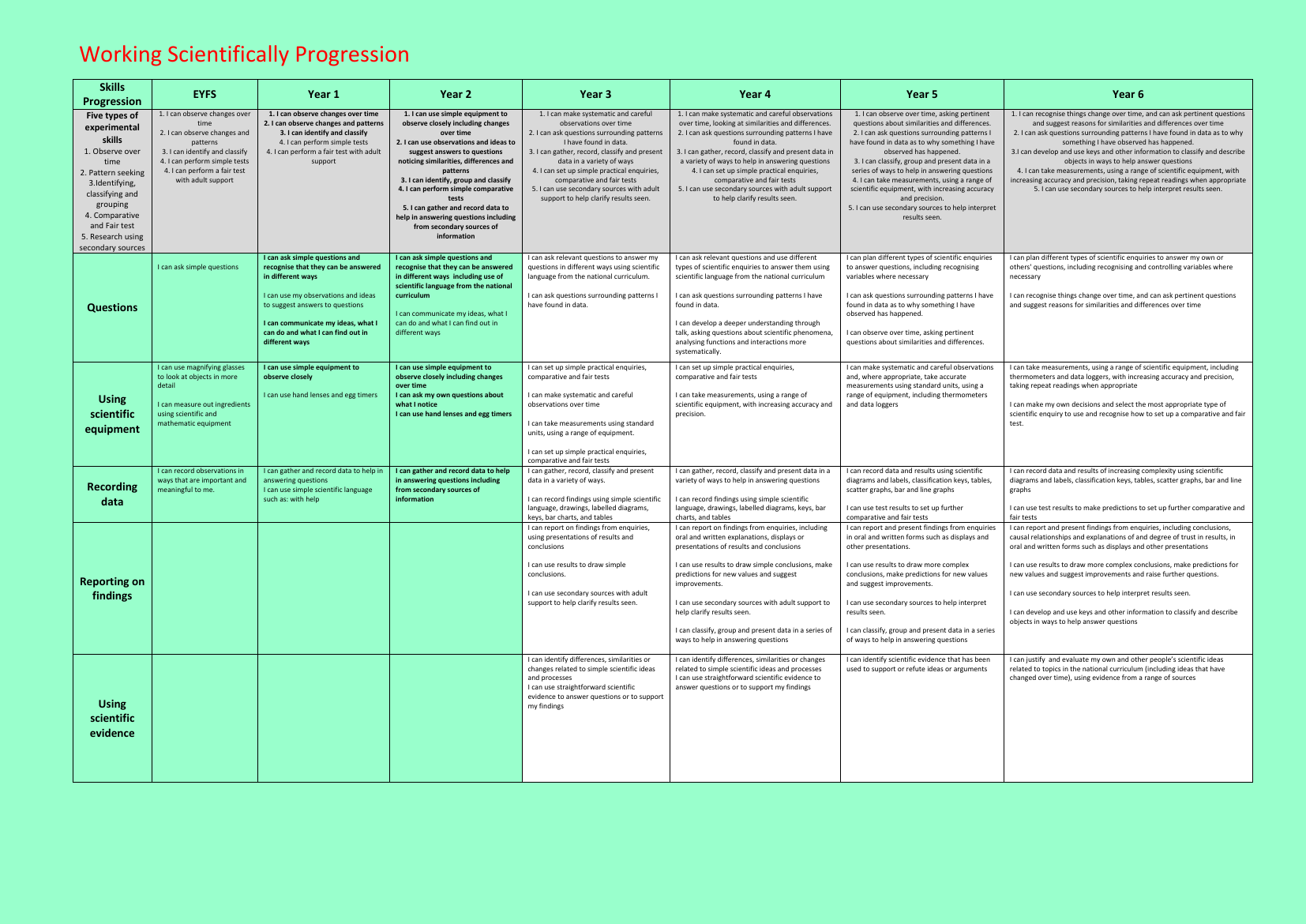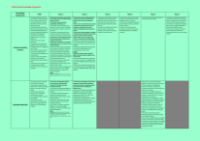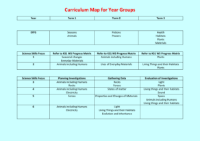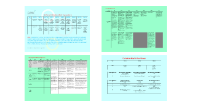Working Scientifically Progression

The progression of 'Working Scientifically' skills across the primary school years outlines a structured development in scientific enquiry for children from the Early Years Foundation Stage (EYFS) through to Year 6. It begins with the ability to observe changes over time and gradually advances to more complex tasks such as setting up comparative and fair tests, and using secondary sources for research. Five key types of experimental skills are fostered: observing over time, pattern seeking, identifying and classifying, conducting comparative and fair tests, and researching using secondary sources. These skills are honed year by year, with students in the EYFS starting by observing changes and using simple equipment like magnifying glasses, while those in Year 6 are expected to conduct precise measurements with scientific equipment and engage in more systematic enquiry.
Questioning is a core component of scientific progression, where students initially learn to ask simple questions and gradually develop the ability to ask relevant, complex questions using scientific language from the national curriculum. Recording data also evolves from simple observation records in EYFS to utilising a variety of charts, graphs, and complex data presentation methods by Year 6. As students progress, they learn to report on their findings with increasing sophistication, using oral and written explanations, displays, and presentations. The importance of using scientific evidence is introduced early and continues to develop, with older students learning to justify and evaluate scientific ideas using evidence from various sources. This structured approach ensures that by the end of primary school, students have a solid foundation in scientific enquiry and are prepared for further scientific education.





